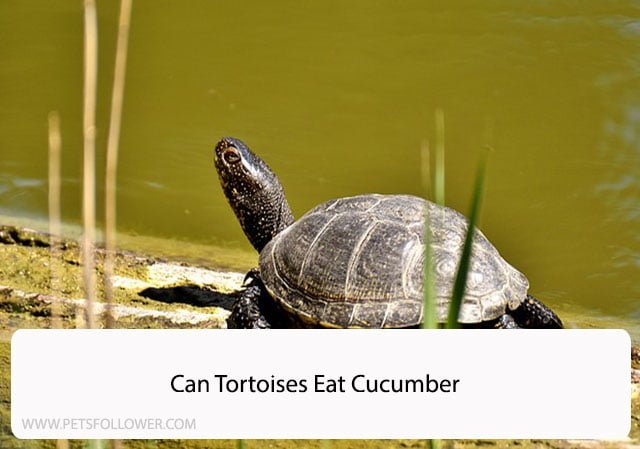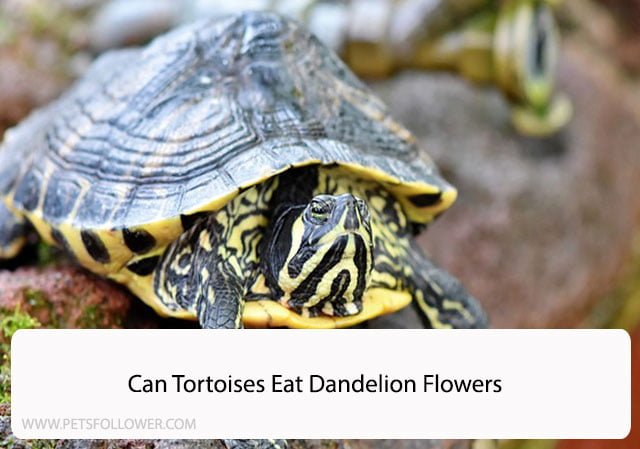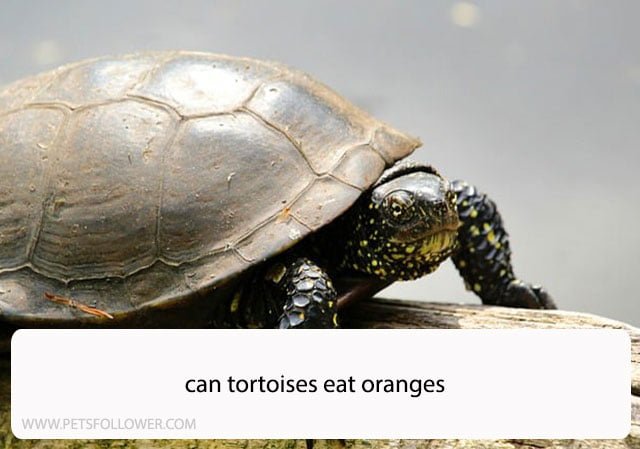Russian tortoises are a popular pet choice for reptile enthusiasts due to their small size, friendly demeanor, and easy-to-maintain diet. As with any pet, it’s important to ensure that you’re feeding your Russian tortoise the right foods to keep them healthy and happy. One common question that many tortoise owners have is whether or not their pet can eat cucumbers.
The answer is yes, Russian tortoises can eat cucumbers. In fact, cucumbers are a great source of hydration for tortoises, as they are mostly made up of water. However, it’s important to note that cucumbers should not make up the majority of a tortoise’s diet. While they can be a healthy addition to their meals, they should not be relied upon as the sole source of nutrition. In this article, we’ll take a closer look at why cucumbers are a good choice for Russian tortoises, as well as how to incorporate them into your pet’s diet in a healthy way.
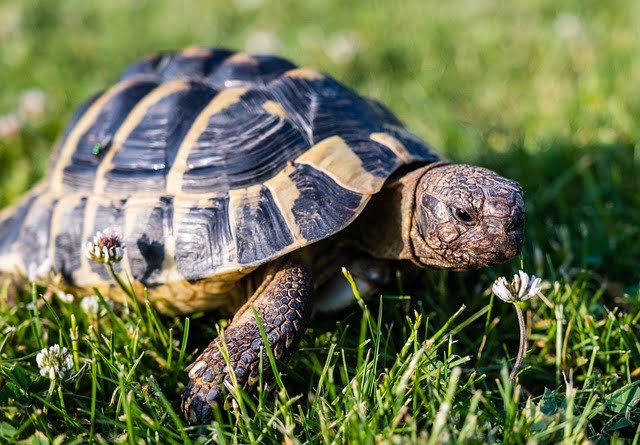
Understanding Russian Tortoises
Habitat and Origin
Russian tortoises are native to Central Asia, specifically Iran, Afghanistan, Pakistan, and parts of Russia. They are adapted to live in hot, dry, and arid regions, and are known to inhabit rocky slopes, desert regions, and steppes. In the wild, they can be found burrowing in the ground to escape the heat.
Russian tortoises are also commonly kept as pets, and can be found in many parts of the world. As pets, they require a habitat that mimics their natural environment. This includes a warm, dry, and well-ventilated enclosure with a substrate that allows for burrowing.
Diet and Nutrition
Russian tortoises are herbivores, and in the wild, they feed on a variety of plants, including grasses, weeds, and flowers. As pets, their diet should consist of a mix of vegetables, fruits, and grasses. Some common vegetables that can be fed to Russian tortoises include:
- Collard greens
- Mustard greens
- Kale
- Carrots
- Squash
Fruits should be given in moderation, as they are high in sugar. Some good options include:
- Apples
- Berries
- Melons
It is important to avoid feeding Russian tortoises food that is high in protein, fat, or calcium. This can lead to health problems such as shell deformities and kidney disease. Additionally, it is important to provide a source of calcium for Russian tortoises, as they require it for healthy shell growth. This can be provided in the form of a calcium supplement or by offering calcium-rich foods such as dark leafy greens and cuttlebone.
Cucumbers and Russian Tortoises
Nutritional Value of Cucumbers
Cucumbers are a great addition to a Russian tortoise’s diet. They are low in calories and high in water content, which makes them a hydrating and refreshing treat for your tortoise. Cucumbers also contain important vitamins and minerals such as vitamin C, vitamin K, and potassium.
However, cucumbers should not be the main source of nutrition for your tortoise. They lack the necessary calcium and fiber that a tortoise needs to maintain a healthy diet.
Potential Risks of Cucumbers
While cucumbers are generally safe for tortoises to eat, there are a few things to keep in mind.
First, cucumbers should be given in moderation. Too much cucumber can cause digestive problems such as diarrhea.
Second, it is important to only feed your tortoise fresh cucumbers. Cucumbers that are past their prime or have been sitting out for too long can harbor harmful bacteria that can make your tortoise sick.
Finally, be sure to thoroughly wash the cucumber before feeding it to your tortoise. Pesticides and other chemicals used in farming can be harmful to your tortoise’s health.
Overall, cucumbers can be a healthy and tasty addition to your Russian tortoise’s diet, as long as they are given in moderation and prepared properly.
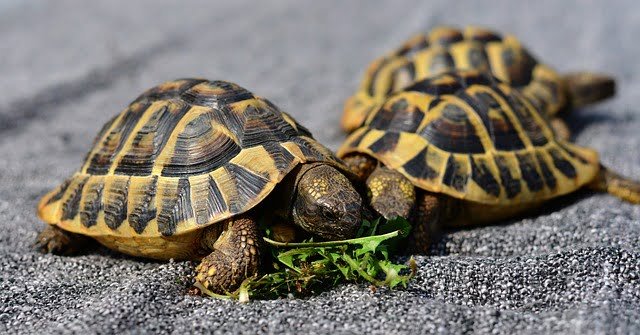
Feeding Cucumbers to Russian Tortoises
Frequency and Quantity
When it comes to feeding cucumbers to Russian tortoises, it’s important to keep in mind that they should only be given as an occasional treat. While cucumbers are safe for tortoises to eat, they are not nutritionally complete and should not be a regular part of their diet.
As a general rule, we recommend feeding cucumbers to Russian tortoises no more than once or twice a week. When offering cucumbers, it’s important to provide a variety of other foods to ensure that your tortoise is getting all of the nutrients they need.
Preparation Methods
Before feeding cucumbers to your Russian tortoise, it’s important to properly prepare them. First, make sure to wash the cucumber thoroughly to remove any dirt or pesticides. Then, slice the cucumber into small, bite-sized pieces.
Some tortoise owners prefer to remove the seeds from the cucumber before feeding it to their pet. While this is not necessary, it can help prevent your tortoise from accidentally ingesting seeds, which can cause digestive issues.
Overall, cucumbers can be a healthy and tasty treat for Russian tortoises when fed in moderation. Just be sure to provide a balanced diet that includes a variety of other foods to ensure that your tortoise stays healthy and happy.
Alternatives to Cucumbers
Recommended Vegetables
When it comes to feeding your Russian tortoise, it’s important to offer a variety of vegetables. Here are some recommended vegetables that you can try:
- Kale
- Collard Greens
- Mustard Greens
- Dandelion Greens
- Turnip Greens
- Endive
- Escarole
- Romaine Lettuce
- Carrots
- Squash
- Bell Peppers
- Broccoli
- Cauliflower
- Green Beans
Fruits and Treats
While vegetables should make up the bulk of your tortoise’s diet, it’s also good to offer some fruits and treats in moderation. Here are some options to consider:
- Strawberries
- Blueberries
- Mango
- Papaya
- Apple
- Pear
- Banana
- Watermelon
- Cantaloupe
- Grapes
- Tomatoes (in moderation)
Remember to always offer a variety of foods to ensure that your Russian tortoise is getting a balanced diet. Additionally, make sure to avoid feeding your tortoise any toxic or harmful foods, such as avocado or rhubarb.
Conclusion
In conclusion, Russian tortoises can eat cucumbers. Cucumbers are a great source of hydration for tortoises, especially during hot weather. They also contain vitamins and minerals that are essential for the tortoise’s health.
However, it is important to remember that cucumbers should not be the main source of food for your tortoise. They should only be fed as a treat once in a while. A balanced diet for your tortoise should consist of a variety of vegetables, fruits, and grasses.
Additionally, it is important to make sure that the cucumbers you feed your tortoise are fresh and organic. Avoid feeding them cucumbers that have been treated with pesticides or other harmful chemicals.
Overall, cucumbers can be a healthy addition to your tortoise’s diet, but should not be relied upon as the sole source of nutrition. As with any food, moderation is key.
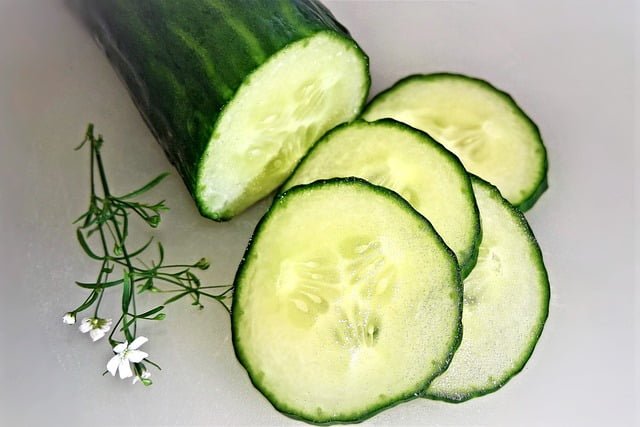
Frequently Asked Questions
What vegetables can tortoises eat?
Tortoises can eat a variety of vegetables, including leafy greens like kale, collard greens, and dandelion greens, as well as vegetables like carrots, squash, and bell peppers. However, it’s important to avoid feeding them vegetables that are high in oxalates, such as spinach and beet greens, as these can interfere with calcium absorption and lead to health problems.
Can tortoises eat carrots?
Yes, tortoises can eat carrots! Carrots are a good source of vitamin A, which is important for maintaining healthy eyesight and skin. However, carrots should only be fed in moderation, as they are high in sugar and can lead to obesity if overfed.
Can Russian tortoises eat zucchini?
Yes, Russian tortoises can eat zucchini! Zucchini is a good source of vitamins and minerals, and its soft texture makes it easy for tortoises to chew and digest. However, like all vegetables, zucchini should be fed in moderation to avoid digestive issues.
Can tortoise eat celery?
Yes, tortoises can eat celery, but it should be fed in moderation. Celery is high in fiber, which can help keep tortoises regular, but it is also high in water content, which can lead to diarrhea if overfed.
Can tortoise eat tomatoes?
Yes, tortoises can eat tomatoes, but they should only be fed in moderation. Tomatoes are high in acid, which can cause digestive issues if overfed. It’s also important to remove the seeds and skin, as these can be difficult for tortoises to digest.
What foods are poisonous to Russian tortoises?
Russian tortoises should not be fed any foods that are high in oxalates, such as spinach and beet greens. They should also avoid foods that are high in fat or protein, as these can lead to health problems. Additionally, it’s important to avoid feeding them foods that are toxic to reptiles, such as avocado and rhubarb.



